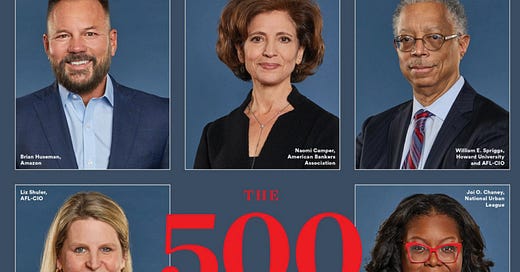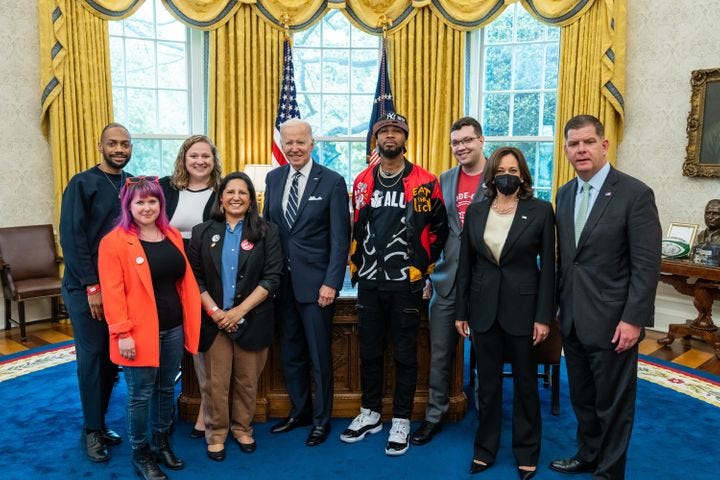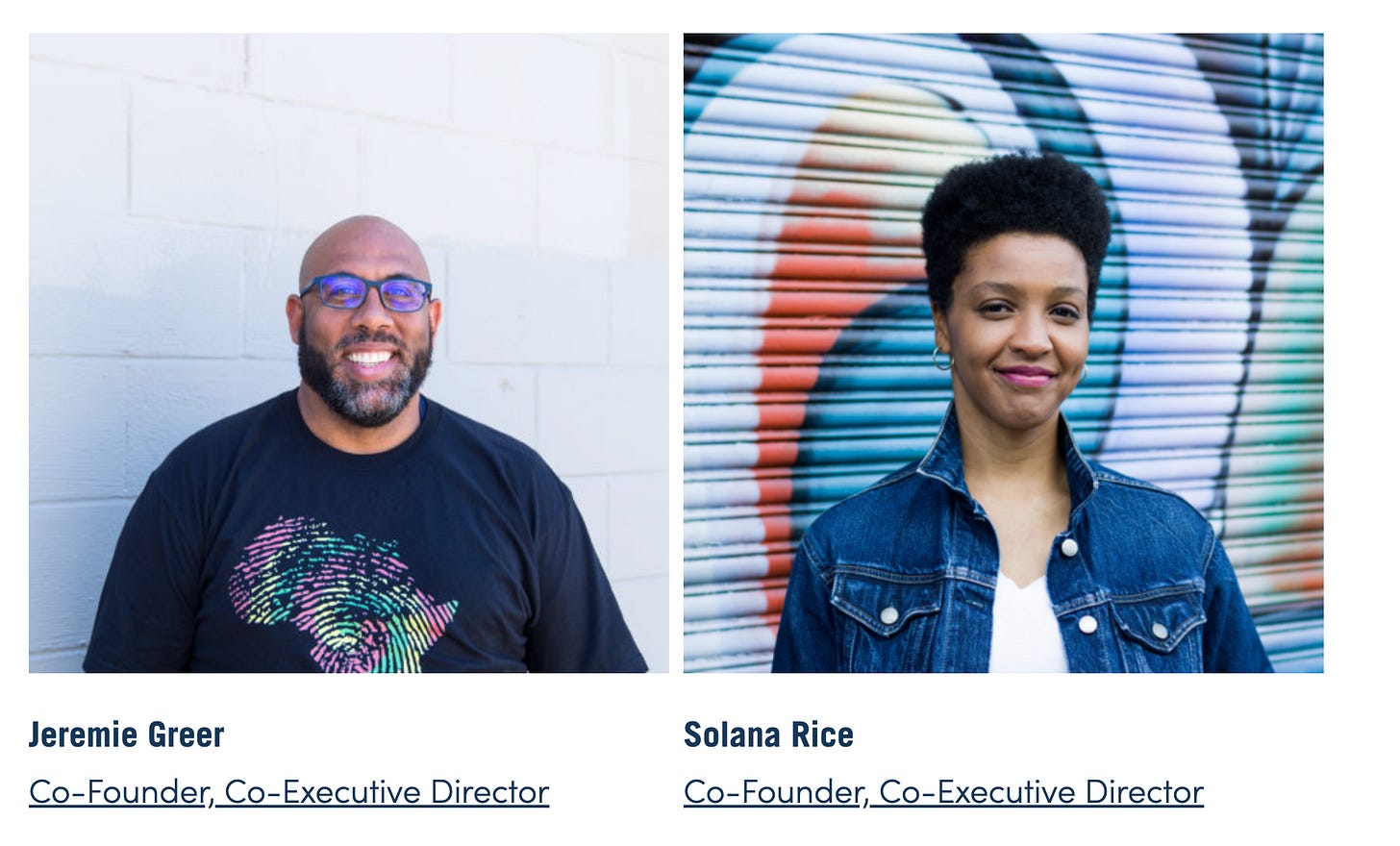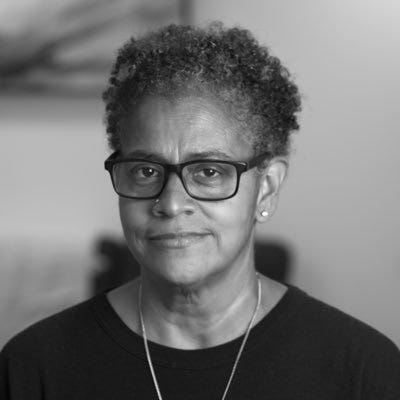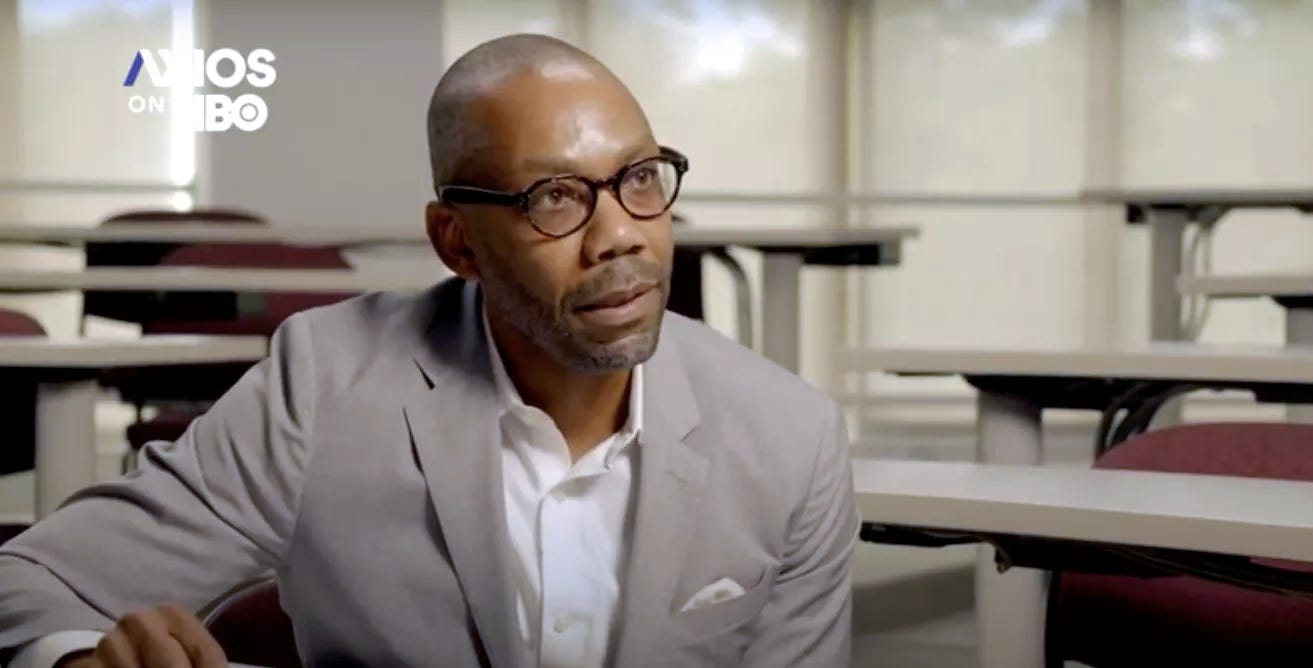Reparations Daily (ish) Vol. 80
The Washingtonian's 500 Most Influential List Perpetuates Racist Understanding of Power
Happy Thursday!
Last week, the Washingtonian released a list of “Washington DC’s 500 Most Influential People,” broken up into 18 categories ranging from education policy to immigration to economic policy to healthcare.
The list reinforces stereotypes of what power and influence look like in our nation’s capital. These are the subtle ways that anti-Black implicit bias and white supremacy are fortified.
While I have a deep respect for many people on the list, particularly the economic policy list, which is today’s Hot Takes focus, I have to amend it. There are too many BIPOC organizers, strategists, researchers, and writers who have pushed us closer to a just economy in the last two years for the list to look the way it does.
Their expertise, power, and influence deserve to be not simply recognized but centered — so I will be bringing the Hot Takes section to the top for this edition.
Some reparations-related news you might want to check out:
With Congress stalling on HR 40, groups are pressing Biden to use his executive order authority to create a reparations commission, according to The Hill
According to the Evanston Roundtable, the reparations committee is exploring other funding models to increase its reparations fund.
Nonprofit Quarterly hosted a discussion on the racial wealth gap featuring some well-known experts. I urge you to watch the exchange starting around minute 36:00.
With radical love,
Trevor
Hot Takes
When we think of media institutions that reinforce the tenets of white supremacy, we often think of right-wing outlets like Fox, the New York Post, and Breitbart. These outlets proudly wear their xenophobia, homophobia, and anti-Blackness on their sleeves. The likes of Rush Limbaugh, Tucker Carlson, and Laura Ingraham explicitly explain to their audience night after night that white people, and the power that they hold, are under attack. What often flies under the radar are the ways that left-leaning media or, in the case of the Washingtonian, which is generally apolitical, perpetuate systems of white supremacy.
Let’s examine the word influence. Merriam-Webster defines it as “the power or capacity of causing an effect in indirect or intangible ways.”
But, what is power?
This is a question that philosophers and social scientists have explored for centuries. Perhaps at another time, we will dive deeper into the concept of power, but for now, we will use Max Weber’s definition that power is the ability to exercise one’s will over others.
What does power look like within a racial hierarchy?
In 1967, Frantz Fanon said that the habit of considering racism as a mental quirk or psychological flaw must be abandoned. Robert Blauner, an American sociologist, said that race and racism are not figments of demented imaginations but central to the economics, politics, and culture of this nation.
Can we then assume that power is inextricably linked to structural racism?
Mark Chesler, a sociologist currently based at the University of Michigan, notes that racism is based on “an ideology of explicit or implicit superiority or advantage of one racial group over another, plus the institutional power to implement that ideology in social operations.”
In my eyes, the Washingtonian, whether implicitly or explicitly, perpetuates the racist ideology of what power and influence mean within the racially hierarchical United States.
I would argue that those fighting on a day-to-day basis against systems of oppression and dragging this country closer to liberation are the most powerful among us. This fight has always been led by people of color, particularly Black and Indigenous groups.
The Washingtonian missed an opportunity to use their platform to push back against our standard understanding of power and where you have to be located to have power in D.C. While I understand they’re a local news outlet, the power
So, here’s a better list:
1. Christian Smalls, President, Amazon Labor Union
If you don’t know Christian Smalls, you can read this New York Times profile on him. He’s the President of the Amazon Labor Union who has been local about hazardous working conditions inside Amazon’s fulfillment centers since the pandemic's start. Last week Smalls met with Vice President Harris and President Biden, where Biden told him, “you’re my kind of trouble,” and wore an “Eat the Rich” jacket while doing it.
2. Solana Rice and Jeremie Greer, Co-Founders, Liberation in a Generation
You can read the full origin story of how Solana and Jeremie, two long-time heavy hitters in the racial and economic justice space, came up with the idea for an organization they’ve named Liberation in a Generation here. There’s a refreshing crop of new organizations centering liberation in both their name and mission, with LibGen leading the charge. Their policy platform is bold yet simple. Dismantle the oppression economy and build the liberation economy. You can hear more about their work and thoughts through their podcast — Racism is Profitable.
3. Kenyan McDuffie, Councilmember Ward 5, Washington D.C.
The Washingtonian decided not to include elected officials but didn’t note why. If you’re paying attention to economic policy, you should be paying attention to various efforts across the country seeking to pass “baby bonds” programs. Last year, Councilmember Kenya McDuffie introduced a bill that he argued would take significant steps to close the city’s alarming racial wealth gap. According to DCist, the bill allows any child born in D.C. on or after October 1, 2021, to a family enrolled in Medicaid or making less than 300 percent of the federal poverty line will be enrolled in the program. The Councilmember joined other experts such as Darrick Hamilton and Gary Cunnigham earlier this year to discuss how other cities and states could implement baby bonds programs.
4. Janelle Jones, Chief Economist, US Department of Labor
There’s a book that will be written about Janelle Jones one day. She is the Chief Economist at the Department of Labor and the first Black woman to ever serve in the role. In 2020, Jones created the term and framework “Black Women Best,” which centers Black women’s economic well-being in economic policy. The framework has reverberated not only around Washington but around the country.
4. Tracy Jan, Reporter, Washington Post
Tracy Jan had what I considered the best journalism job in the country. Since 2016, she’s covered the intersection of race and the economy and published some fantastic articles since that time. One of my favorite pieces from her is this August 2021 piece that explored where the billions of dollars corporations pledged after the murder of George Floyd went. She also wrote this amazing piece that explores the intersections of reparations for Japanese internment and slavery through the story of one family.
5. Melissa Bradley, Founder, 1863 Ventures
Within seconds on 1863’s website, you’ll see how deeply committed and impactful they are to D.C.’s entrepreneurial ecosystem. “Though we’re a national brand, we are deeply committed to being a force of change in the nation's capital,” the website reads. Founded in 2016 by Melissa Bradley, the nonprofit has unlocked capital for entrepreneurs of color while also highlighting how systemic racism in business hurts them. She hopes to support the creation of 10,000 new jobs and $500 million in revenue generated in D.C. by 2030. With her track record, these are very attainable goals.
7. Andre Perry, Senior Fellow, Brookings
Dr. Perry, along with his colleague Dr. Rashawn Ray, wrote one of the most critical pieces on reparations over the last two years. Their paper, ‘Why we need reparations for Black Americans,’ makes a clear case for why it is time for the United States to explore reparations. Andre was also nice enough to sit down for an interview with me in the early days of the newsletter.
I could keep going, but I’ll stop here. Hopefully, the Washingtonian and any other outlet that considers putting out a list based on “influence” or “power” can think deeper about what racist tropes they might be perpetuating before they hit publish.
National News
The Hill: Racial justice groups press Biden to form reparations commission'
Nonprofit Quarterly: Closing the Racial Wealth Gap
New York Times: What I Want My Kids to Learn About American Racism
Washington Post: How Post journalists reported on George Floyd’s life and legacy
CBS: Migrant families separated under Trump face elusive quests for reparations under Biden
NBC News: Black women in the South have been bracing for Roe’s fall for decades
Word in Black: ‘I Don’t Want the Black Girl in Here’: How a Third-Generation Nurse Handles Racism
USA Today: Delaware HBCU team’s bus searched in Georgia. They didn't find any critical race theory.
FiveThirtyEight: How Anti-Critical Race Theory Bills Are Taking Aim At Teachers
Tag 24: REPARATIONS: THAT TIME THE US PAID OUT COMPENSATION – JUST NOT TO THE VICTIMS OF SLAVERY
Axios: An overlooked driver of the racial wealth gap
Fortune: Student loan forgiveness is the overlooked remedy that could help close the racial wealth gap
Peoples Policy Project: The Racial Dynamics of Student Debt
Slate: Is America Ready for a Guaranteed Basic Income?
Smithsonian: How a Failed Assassination Attempt Pushed George Wallace to Reconsider His Segregationist Views
Regional News
Evanston Roundtable: Reparations committee looking at other funding models
Evanston Roundtable: Nonprofit to donate $20,000 in repairs to some reparations recipients
Washington Post: In Wisconsin, a complex debate on crime foreshadows a midterm fight
The Bond Buyer: ‘Baby Bonds’ program delayed in Connecticut’s $24.2 billion budget
The Harvard Crimson: The Legacy of Slavery at Harvard
Detroit News: Michigan fought against slavery but had two former slave owners serve in Congress
WTTW: New Reparations Focus: Black Enclaves Lost to Development
Lost Coast Outpost: New Fund to Plant Seeds of Reparations for California’s Native American Communities
Mlive: Michigan can help close racial equity gaps with these 11 measures, Black leadership council advises
CT Public Radio: 'Unexpected' state budget vote delays 'baby bonds' program targeted at closing racial wealth gap
Nonprofit Quarterly: Wealth Stripping by Design: The Impact of Predatory Lenders in Memphis
The Hill: Austin begins guaranteed income program
U Chicago News: Chicago to pilot nation’s largest guaranteed income program: How University experts will help evaluate
Next City: Palm Springs Turns to Guaranteed Income to Lift Transgender Residents Out of Poverty
WTOP: Richmond seeks to move last city-owned Confederate monument
Atlanta Journal-Constitution: Ownership of Confederate monument installed in 1993 central to lawsuit
Seattle Times: Activist Group Looks To Advance Local Reparations Efforts
International News
Myanmar Now: Myanmar’s junta is blocking pathways for transitional justice
Washington Post: Accused in deaths of innocents, a former colonel confronts his hame
Taipei Times: Seeking land justice for indigenous communities

